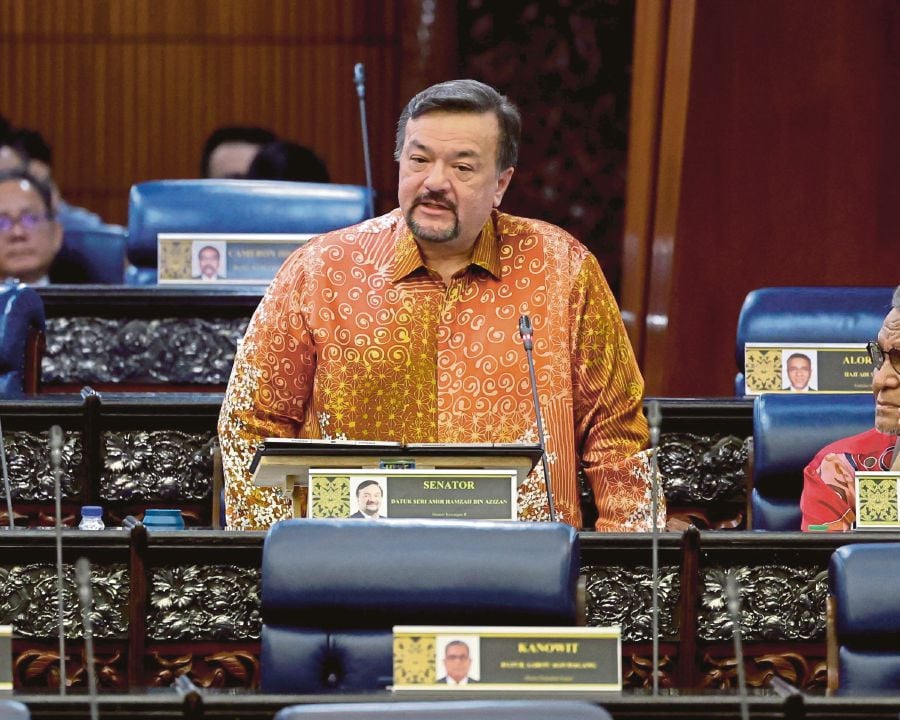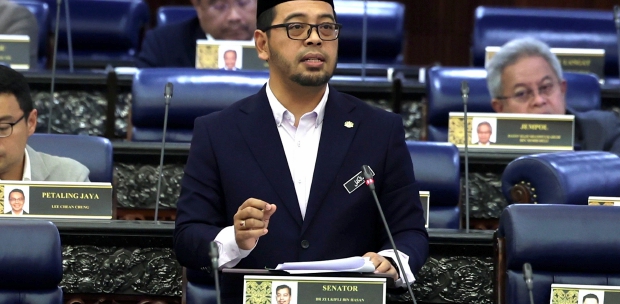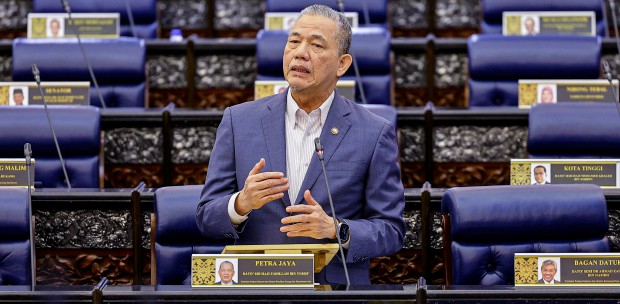KUALA LUMPUR: The government has no plans to revive the Goods and Services Tax (GST) which was abolished in 2018, the Dewan Rakyat was told today.
However, Finance Minister II Datuk Seri Amir Hamzah Azizan said the government remains committed to a progressive approach, focusing on targeted subsidies and taxation.
"It is not the right time now to reintroduce it, especially for low-income earners. The government will focus on improving the existing tax system and introducing taxation that does not affect vulnerable groups before considering new taxes like GST.
"This approach aims to increase government revenue gradually by expanding the tax base to those with a higher ability to pay," he said.
Amir Hamzah said even though the inflation rate averaged 2.5 per cent in 2023, it was nearly five per cent for food and beverages.
"This category is more keenly felt by the rakyat and this is one of the reasons why the food tax rate is maintained at six per cent," he said.
He was responding to Datuk Syed Abu Hussin Hafiz Syed Abdul Fasal (PN-Bukit Gantang) during the ministers question time on whether the government was ready to reimplement GST, as over 175 countries are adopting this regime.
Amir Hamzah said the government will ensure that any tax measures taken do not directly impact vulnerable groups and that their welfare will remain protected.
Meanwhile, Datuk Seri Radzi Jidin (PN-Putrajaya) raised concerns about the impact of the Sales and Service Tax (SST) increase and its expansion compared to the previous implementation of GST, particularly in terms of revenue and national income.
In response, Amir Hamzah said the government was trying to reduce the burden on the entire population, especially vulnerable groups.
"Regarding the logistics tax imposed, our strategy aims to reduce the burden by not levying service taxes in areas where business-to-business transactions occur. For example, we do not impose service taxes on exports, ensuring that we do not hinder the current economy.
"In terms of government actions, we also look at where we can provide tax relief, especially for vulnerable groups and we do not increase taxes. This is the government's approach, considering that not all citizens have the same economic basis.
"In terms of differences between GST and SST, what is important is the government's ability to use the tools available now to address immediate concerns and find ways to reduce inefficiencies in the system. Subsidy reform is essential for the government at this time," he said.
Earlier, when answering the original question from Rodziah Ismail (PH-Ampang) about the government's readiness to introduce more progressive tax alternatives before reintroducing GST, Amir Hamzah said the current focus was on implementing tax reforms progressively.
He said this was the best method to reduce the impact, especially to avoid burdening the people with high living costs.
"In considering tax matters, the government ensures it will continue to protect the people's interests at all times and simultaneously enhance enforcement and monitoring of businesses taking advantage of raising service prices excessively, especially those not involved in the increase," he said.
He said the government will continue to increase the level of monitoring of and enforcement against any entrepreneur who takes the opportunity to increase the price of services excessively, especially by those who are not involved with the service tax increase.





